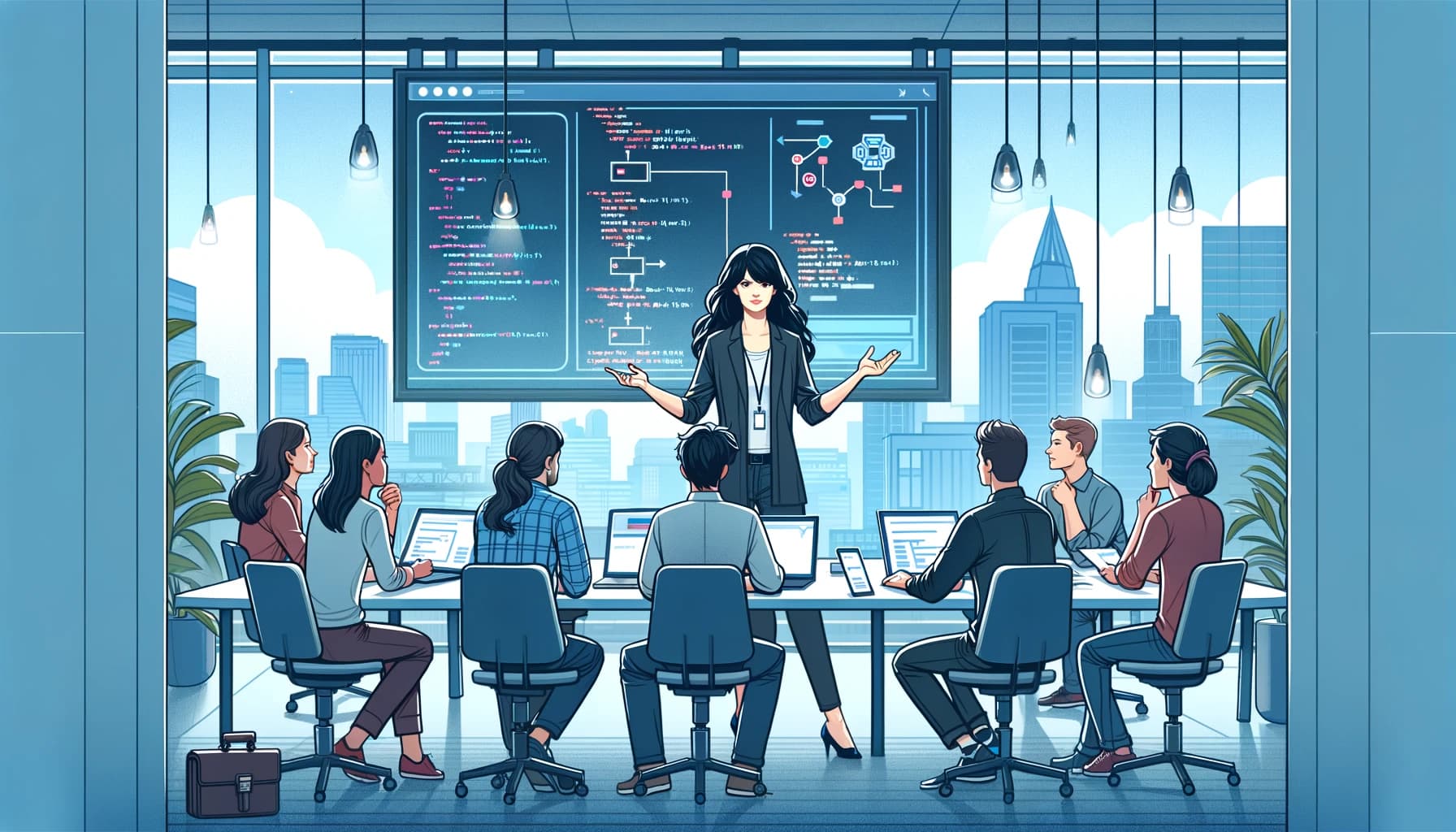
Tech Leader: the power of listening, sharing, being assertive, and growing people.
I recently welcomed Dorra Bartaguiz, VP Tech at Arolla, to the Podcast Tech Lead Corner and asked her to share her vision of what it means “Being a Tech Leader“. Here are her three key takeaways:
Practice active listening and being assertive
According to Dorra, active listening is a tech leader’s most underrated yet crucial skill. The ability to truly hear and understand the team’s ideas, concerns, and suggestions fosters a culture of collaboration and mutual respect. Leaders can harness their team’s collective intelligence to navigate challenges and identify the best path forward by acknowledging that they don’t hold all the answers. Dorra thinks active listening is a cornerstone of any successful team.
Assertiveness means defending your work with conviction and trust while respecting others. This should not be confused with aggressiveness; it’s about being firm and straightforward without undermining the team’s morale. It’s not about harming; it’s about stopping the bleeding. When problems arise, it’s crucial to address them immediately.
A common misconception is that a tech leader must be the top expert in every technological domain. However, leadership doesn’t require omniscience. Instead, it demands a solid foundation in technical knowledge to make informed decisions and guide the team effectively. Active listening and being assertive enables tech leaders to evaluate solutions proposed by their team, ensuring that choices align with the project’s goals and strategic direction.
Share knowledge and encourage others to share
The transmission of knowledge within a team is a seal of effective tech leadership. Dorra underlines that tech leaders should be passionate about sharing (technical skills, best practices, and even attitudes). Moreover, mentorship extends beyond technical skills to include professional development, encouraging a mindset of continuous learning and curiosity.
A tech leader must elevate other developers’ skills. Dorra pays attention to developers’ perspectives of growing as tech leaders and tries to detect as early as possible who has the potential to become a tech lead. According to her, a tech leader should understand and adapt to their team members’ personalities early on. Those who are shy or introverted but still willing to share with others should be encouraged to progress in that domain (for instance, by running internal presentations). The idea is that the team can rely on another leader when the current leader will leave the team.
Finally, a tech leader must prepare their team to function independently, minimizing the “bus factor” – the risk associated with the departure or absence of key individuals. If a team panics when the tech leader is missing, this is a bad smell.
Provide constructive feedback to help people grow
Delivering and receiving feedback constructively is an art that tech leaders must master. It involves not only the content of the feedback but also its delivery method, which should be tailored to the individual’s personality and the context. Dorra says that it’s not always a pleasant moment, especially when the feedback has negative content. But this is truly necessary to help the receiver progress and learn.
Both Tech leaders and developers should be open to receiving feedback. Otherwise, this will curb any form of progression. When there is a problematic situation to address, we need to discuss it to determine the root cause, and if it’s due to a wrong behavior or practice, we must work to fix it. Otherwise, you’re merely applying band-aid solutions, and no one will progress. That’s why a tech leader should always maintain an environment where failure is seen as a stepping stone to learning. On that topic, the book Radical Candor by Kim Scott is a must-read to provide constructive feedback.
I enjoyed this discussion with Dorra about the soft skills and postures of the tech leaders. Let’s catch up after the next episode to share new insights on that topic!
Here you can listen (in French) to this full episode with Dorra: